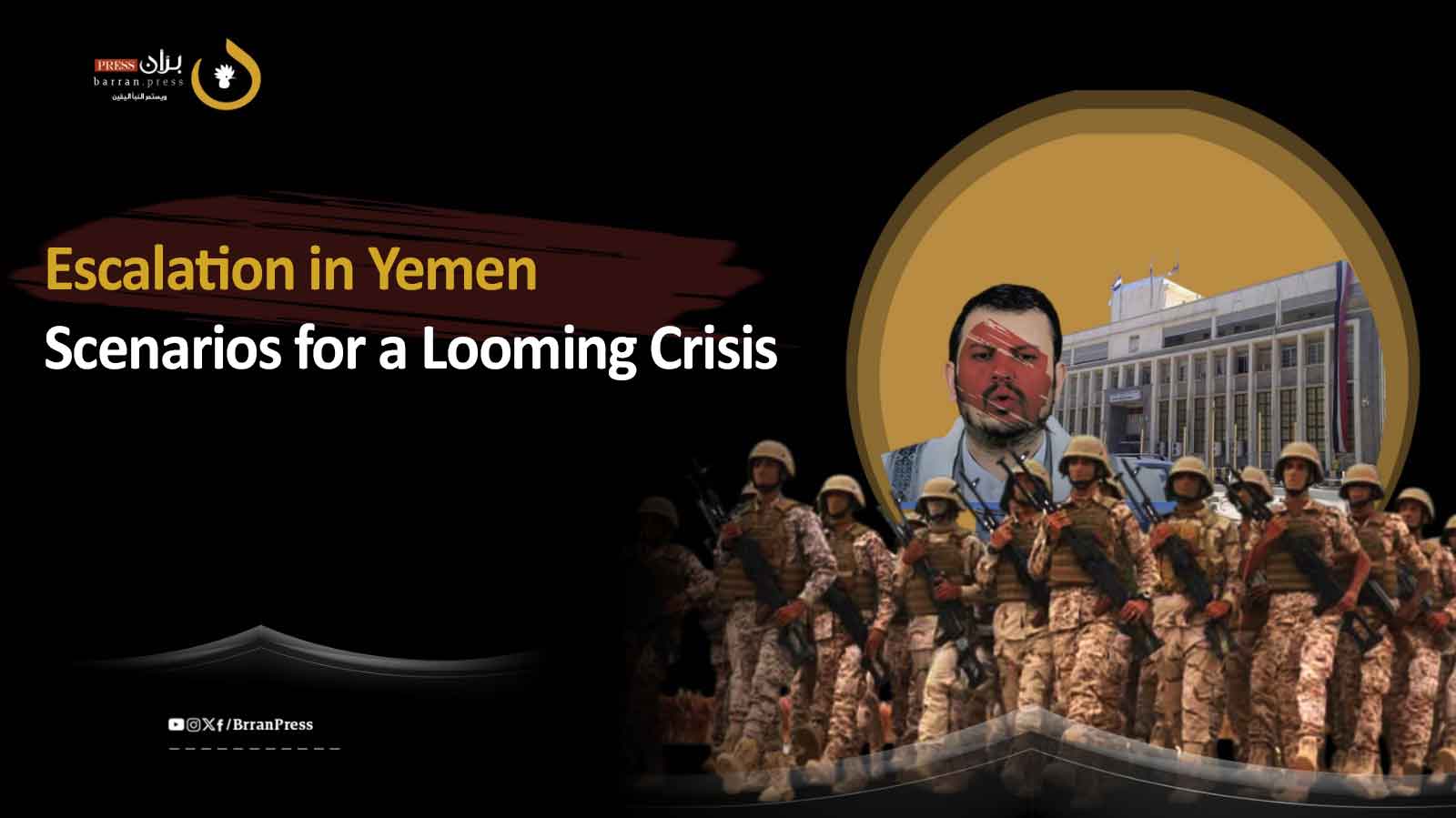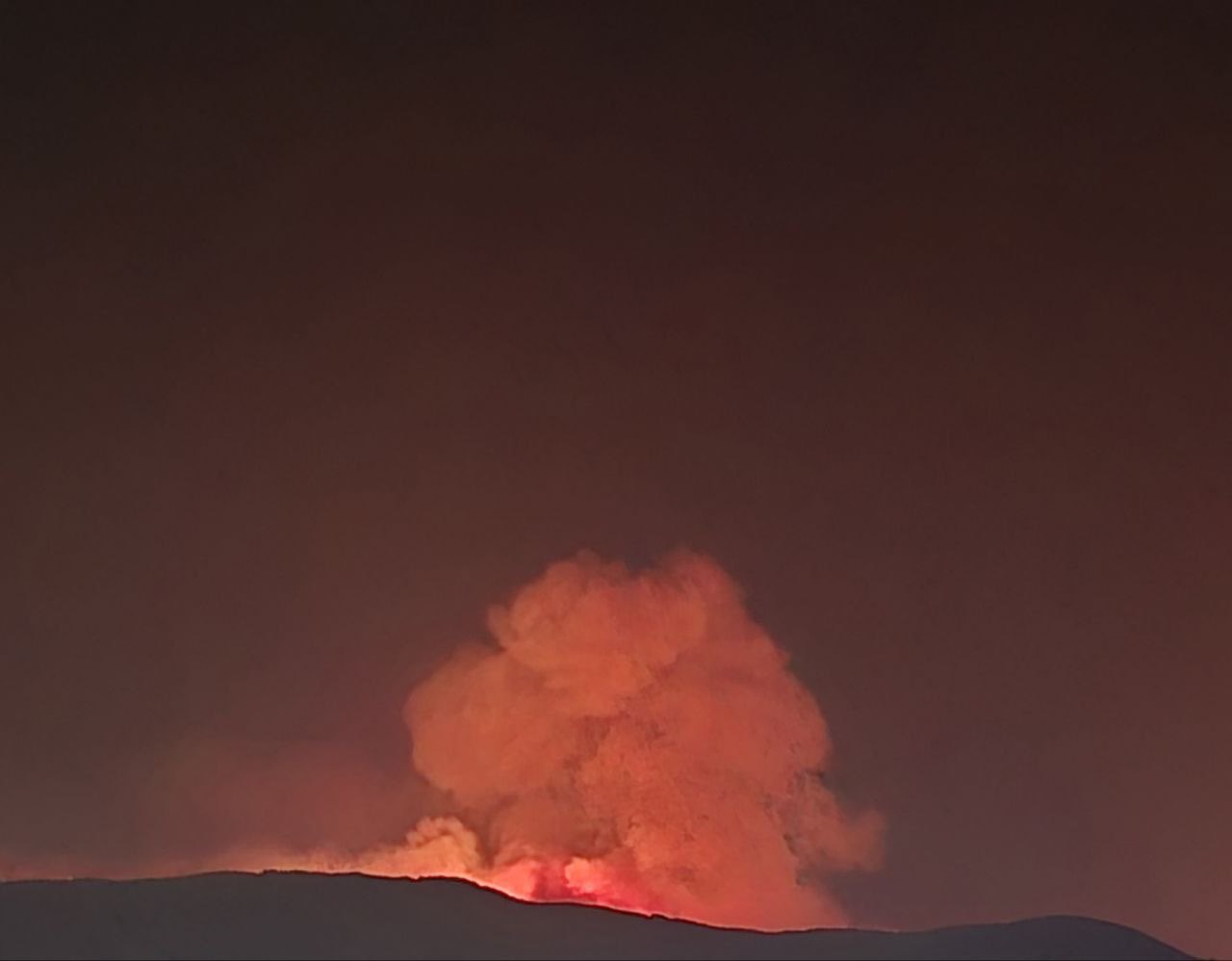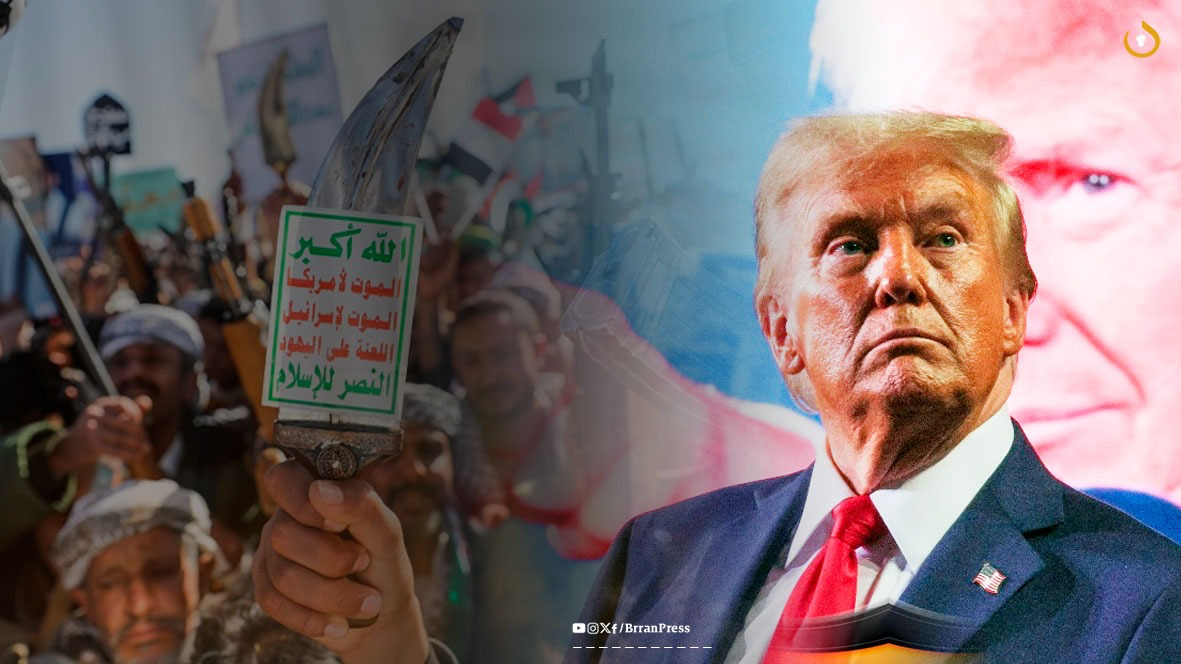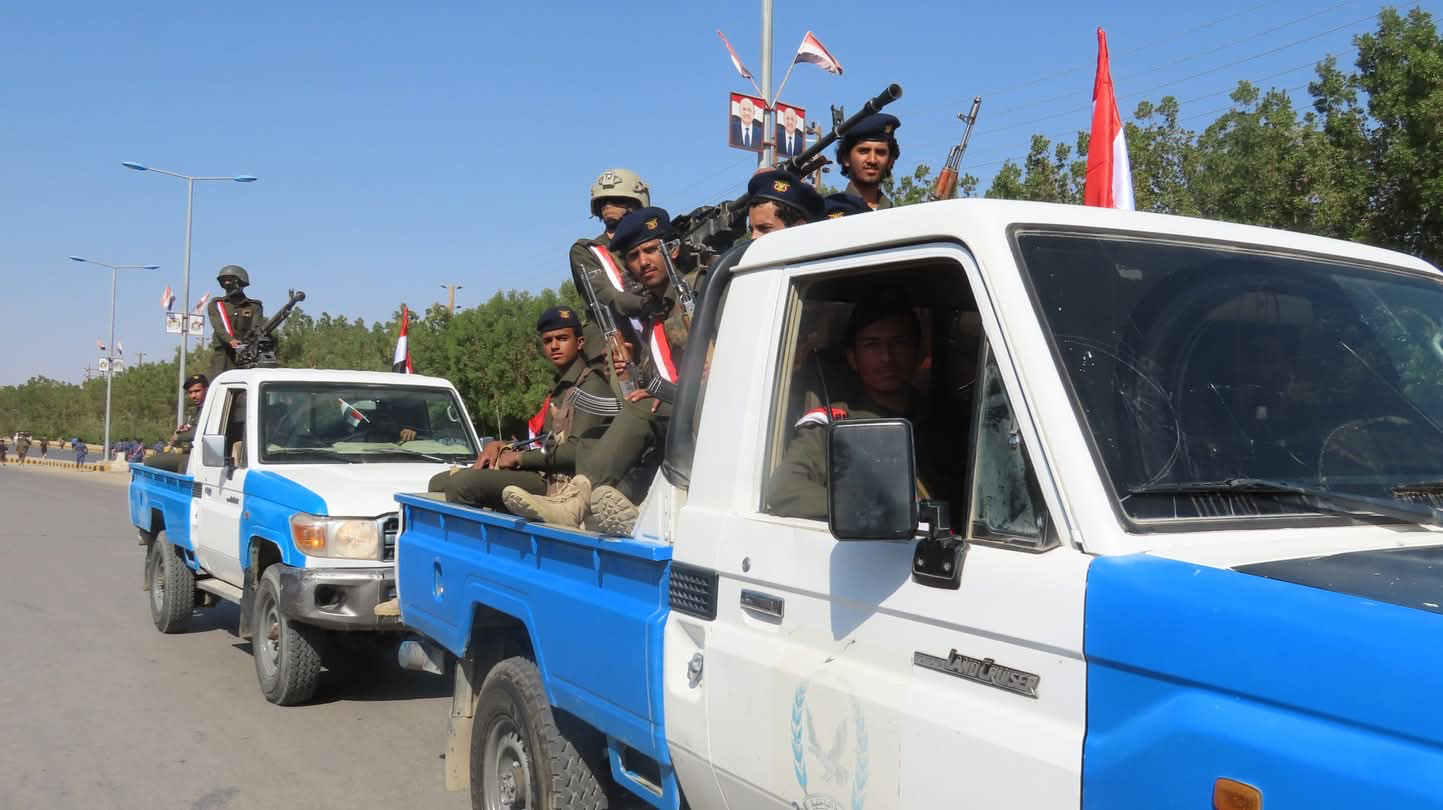
Brian Press - Reporting Unit
The Yemeni Presidential Leadership Council (PLC) issued a stern warning to the Houthi group, designated as a terrorist organization by several countries, on Friday, July 12, 2024. The PLC cautioned against a "full-scale escalation," emphasizing the readiness of the Yemeni armed forces to counter any "hostile adventure" by the Houthis.
This warning comes amidst heightened tensions and military mobilizations on both sides of the conflict. The Houthis have threatened to resume military escalation, potentially returning the country to a full-blown war, disregarding the prolonged humanitarian suffering.
The PLC's statement followed a series of urgent meetings held by the council. These meetings addressed the Houthi threats and a UN request for the PLC's support in facilitating a UN-led dialogue to discuss recent economic developments and potential solutions. The PLC, however, has set preconditions for engaging in any dialogue, demanding the resumption of oil exports, unification of the national currency, and the revocation of all arbitrary measures against the banking sector.
The PLC's meeting coincided with intensive military gatherings and heightened readiness among Yemeni army forces. These actions are mirrored by similar mobilizations by the Houthis and government forces along various fronts in the Taiz, Lahj, and Marib governorates.
Earlier threats from Houthi leaders, including group leader Abdul Malik al-Houthi, have targeted Saudi Arabian ports, airports, oil facilities, and banks. Al-Houthi accused Saudi Arabia of influencing recent decisions by the Yemeni Central Bank.
These escalating threats and military movements have sparked concerns about a potential collapse of UN-led peace efforts and regional initiatives aimed at ending the war.
The recent developments have raised questions about whether Yemen is on the verge of a new round of conflict. The PLC's insistence on specific preconditions, previously rejected by the Houthis, further fuels these concerns.
Expert Analysis: Three Potential Scenarios
Political analyst Dr. Adel Dushailah, speaking to Barran Press, outlined three possible scenarios for the future of the Yemeni conflict:
Scenario 1: Military Escalation
Dr. Dushailah suggests that the current media escalation could lead to a full-scale military confrontation. This scenario is a real possibility given the heightened tensions and military mobilizations.
Scenario 2: Houthi Concessions and Dialogue
In this scenario, the Houthis would yield to the demands of the PLC and the international community, engaging in genuine dialogue to address economic issues, including currency unification and humanitarian concerns. This would pave the way for discussions on political, military, and security settlements. However, Dr. Dushailah expresses doubts about the Houthis' willingness to genuinely engage in a political process, fearing potential losses of their hard-won military gains.
Scenario 3: Stalemate and Continued Escalation
This scenario involves a continuation of the current political and media escalation, with no meaningful dialogue or concessions from either side. This outcome would be detrimental to the Yemeni people, exacerbating the humanitarian crisis and prolonging the suffering in both the north and south of the country.
Two Paths for the Houthis
Hussain Al-Sufi, a political researcher and head of the "Bilad Center for Studies and Media," provided a nuanced perspective on the current situation. He emphasized the importance of recognizing the legal framework: "The current state is a ceasefire, not a truce. Truces typically involve specific conditions, geographical limitations, and other criteria."
Al-Sufi highlighted the ongoing ceasefire as a period of uncertainty, with all options on the table: "The situation in Yemen is a prolonged ceasefire, leaving both the possibility of a decisive war or comprehensive peace."
He pointed to recent developments, including statements by the Chinese ambassador to Yemen, suggesting a potential breakthrough: "Indicators point to efforts by active parties in the Yemeni conflict, including China's declared mediation efforts. These efforts, as understood from the statements, could lead to a lasting agreement, especially considering China's influential relationships with Iran, Saudi Arabia, and all Yemeni parties."
Al-Sufi further argued that the recent threats from the Houthis and the countermeasures by the Yemeni army and resistance forces reflect a deeper economic battle: "The real battle is an economic one, led by the Central Bank. This explains the threats veiled in pleas and appeals within the Houthis' recent discourse, particularly focusing on the Central Bank."
He continued: "The current battle is about reclaiming the country's financial institutions, economic nerve centers, and monetary reserves. The Houthis sense that the government's control over the economic lifeline will lead to their ultimate isolation. This is akin to a complete paralysis of their control over the people's livelihood, their interests, and their sustenance. It's a battle to liberate Yemenis from the Houthi terrorist authority that deliberately steals food from the mouths of the hungry."
Al-Sufi concluded that the Yemeni army is preparing for this decisive move, which could potentially push the Houthis into reckless actions and ignite a war: "This move could force the Houthis to commit reckless acts and ignite a war to escape the complete paralysis that is about to be achieved through the Central Bank's measures. This leaves the group with only two options: either they respond to their conscience and relinquish control over Yemeni funds and sovereign financial institutions, or they face complete paralysis and the loss of their economic lifeline."
Coalition's Options
Military analyst and expert Yasser Saleh offered a different perspective, highlighting the Houthis' continuous mobilization: "Behind this is a persistent mobilization by the Houthis. I believe they have another agenda within their military and political objectives, which is to seize strategic locations or provinces that could fundamentally alter the equation with the government."
Saleh attributed the failure to sign a roadmap to the unfavorable regional and international circumstances: "The situation is contingent upon numerous developments towards peace, including the cessation of operations in the Red Sea. The US elections are linked to several major balances, including the Yemeni file, which is a crucial issue in this context."
He further explained the impact of these factors on the proposed roadmap: "All of this has cast a shadow over the discussed roadmap. Even signing a roadmap doesn't guarantee reaching the threshold of peace, but rather serves as a prelude to a political marathon that could falter at any turn."
Saleh emphasized the Houthis' historical stance of seeking complete control and rejecting any compromise: "If we look back at the political history of the Houthi group and their declared objectives, they aim for complete control and refuse to accept any other party, regardless of their name or designation, within a local or even regional consensus."
He highlighted the continued reliance on military power as the ultimate deciding factor: "Military mobilization remains the ultimate arbiter for both sides, with each believing they hold the key to victory. However, the international and regional community is trying to change this scenario, which is behind all these mobilizations."
Saleh stressed the need for a comprehensive peace following any decisive action: "The true resolution lies in a comprehensive peace that follows, because the Houthis' ideology does not accept others. The areas under their control are a testament to this."
He cited the Houthis' controlling mechanisms as evidence of their unwillingness to share power: "The control mechanisms clearly demonstrate the Houthis' refusal to share power or accept others. Therefore, military resolution remains the most likely outcome, especially considering the Houthis' reliance on Iranian support, Iranian agenda, and expansionist ambitions in the region, even in their conflict with the international community."
Saleh warned of the consequences of the Houthis becoming part of any consensus government: "The Houthis' inclusion in any consensus government or their rule over this geographical region will undoubtedly lead to recurring military operations and instability in Yemen."
He emphasized the impact on international relations: "Such a scenario would cast a shadow over the future of international dealings with the Houthis."
Saleh predicted a cycle of violence: "We will witness strikes from time to time, so military resolution remains the best option."
However, he acknowledged the opposing views of the international and regional community: "International and regional calculations have a different opinion, making the path to peace a minefield, not a comprehensive, just, and complete peace."
Regarding the decision to halt financial transfers to areas under Houthi control, Saleh clarified: "Saudi Arabia has not stopped transfers to those areas; it's the banks that were targeted by decisions from the Central Bank in Aden."
He identified the specific banks involved: "Al-Tadamon Bank, Al-Kereme Bank, and Saba Bank are the ones controlling these transfers. Since the Central Bank issued a decision to revoke the codes of these banks, no one will deal with them, not just Saudi Arabia, but the entire world will refrain from dealing with these banks as long as they are banned by the Central Bank."
Saleh attributed the situation to the Houthis' refusal to move the main server and headquarters to Aden: "The Houthis are responsible for this entire situation because they refused to move the main server and headquarters to Aden. Therefore, no international bank can deal with these banks."
On the resumption of airstrikes by the Arab Coalition, Saleh did not expect a return to such actions: "I don't expect the Arab Coalition to resume airstrikes in the near future, especially after the escalation we witnessed in the Red Sea and the Coalition's efforts to reach a peace settlement, regardless of the cost."
He emphasized the Coalition's response to any Houthi attacks: "Any Houthi targeting within Saudi Arabia, the UAE, or any other Coalition member state will undoubtedly trigger a Coalition response."
Saleh concluded that the current path is towards peace: "This option doesn't seem to be the prevailing one, but the path to peace is the one being pursued. The deciding factor will be the nature of Houthi attacks, the fate of the roadmap, and the desired peace in Yemen through the international community, perhaps through the United Nations."
Military Option Remains on the Table
Saleh Al-Qutaibi, Deputy Director of the Armed Forces Media Center, characterized the recent military meetings of the Ministry of Defense and General Staff leadership as "routine and not new." He highlighted the ongoing battle against the Houthis, citing the recent conflict in the Al-Jofra region south of Marib, as well as in Taiz and other areas. While acknowledging the defensive nature of the current conflict, Al-Qutaibi emphasized that the Armed Forces are "fully prepared and ready to engage in a comprehensive decisive battle to uproot the Iranian terrorist project and liberate our people from the suffering caused by this rogue gang that has stripped itself of all morals, values, and laws."
Regarding the peace roadmap, Al-Qutaibi asserted that the Armed Forces have maintained a consistent stance, believing that the Houthis will not respond to peace calls. He stated that only military decisiveness will force them to seek peace, and that the current pause in military operations is due to directives from the political and military leadership, seeking to provide an opportunity for mediators.
When asked about the possibility of a shift towards a military solution, Al-Qutaibi affirmed that the war has been ongoing since the Houthis' coup against the legitimate government, never truly ceasing. While the intensity has decreased compared to previous years, the Houthi militia has not stopped, and the Yemeni forces are merely defending themselves, following the directives of the political and military leadership.
Al-Qutaibi considers a comprehensive military campaign and decisive action to be the best option for the Yemeni people and the entire region, arguing that it would eradicate the root cause of the crisis created by the Houthi gang. He believes that the current peace efforts are merely delaying the inevitable conflict.
He dismissed those who advocate for continued peace negotiations as either foreigners unfamiliar with the complexities of the Yemeni situation and the nature of the Houthi militia, or beneficiaries of international organizations that squander donor funds on empty peace festivals.
Intensified Military Movements
These warnings follow a period of intensified military movements. On Thursday, July 11, the Minister of Defense in the internationally recognized Yemeni government, Lieutenant General Mohsen Mohammed Al-Da'ari, convened a large meeting with the leadership of the Ministry of Defense and the General Staff, attended by the Chief of General Staff and Commander of Joint Operations, Lieutenant General Saghir bin Aziz, via video conferencing from Marib.
According to the official Yemeni news agency Saba, the meeting discussed the military situation on the battlefronts in light of the Houthi escalation and continued threats. Al-Da'ari urged military leaders to "double their coordinated efforts with all relevant departments and agencies to enhance combat readiness, continue the achievements made, particularly in the areas of training and qualification, and increase vigilance in all military regions and axes."
On Wednesday, July 10, the Prime Minister of the internationally recognized Yemeni government, Ahmed bin Mubarak, chaired a meeting of the Joint Operations Authority, focusing on the performance and achievements of the authority in unifying national efforts in the fight against the Houthi group.
Bin Mubarak emphasized the crucial role of joint operations in unifying the efforts of different military components to achieve victory against the Houthi group, describing their Iranian-backed sectarian project as a threat to the security and stability of Yemen, the region, and the world.
Following the meeting, the Prime Minister visited the military base in the Tawhi district of Aden, inspecting the operations and services provided to the Armed Forces personnel in the supply and logistics department, the military administrative base, and their role in providing logistical support to combat units.
Last Monday, the Minister of Defense, Lieutenant General Mohsen Al-Da'ari, affirmed that the Yemeni Armed Forces are not seeking war but are prepared for it. He stated, "We are not against peace, but if war is imposed on us, we are ready."
He reiterated his support for a just peace that guarantees the end of the coup, the restoration of state institutions, and the deterrence of Houthi injustice, arrogance, and aggression against the Yemeni people. He also emphasized the need to protect the Armed Forces personnel from rumors aimed at undermining the military institution.
Simultaneously, the Chief of Staff of the Yemeni Army, Lieutenant General Saghir bin Aziz, confirmed the readiness of the Yemeni Armed Forces, in all their formations and units, to enforce a lasting peace in Yemen based on established references, safeguarding the gains, dignity, and pride of the Yemeni people.
He stated that victory will belong to the Yemeni people and their republican project, as well as to the goals and principles of September 26 and October 14. He expressed confidence that Yemen will regain its state, stability, security, sovereignty, and happiness, liberating itself from the shackles of priesthood, colonialism, and projects of death, terrorism, and destruction. He declared that victory belongs to the rightful owners of the land and justice to the righteous cause.
Decisions and Threats
These intensified military movements follow Houthi threats of military escalation in response to decisions by the Yemeni Central Bank aimed at regaining control over the financial and banking sector and rescuing it from the group's practices.
Last week, Governor Ahmed Al-Ma'bqi, through bank decisions, revoked the licenses of 26 exchange companies since late last month, ordering the closure of their branches indefinitely for violating bank decisions and instructions.
These decisions followed two previous ones: the imposition of a unified network for domestic remittances, the prohibition of dealing with 12 unauthorized electronic payment entities, and the complete cessation of operations in local remittance networks owned by banks, financial institutions, or exchange companies operating in Yemen.
On May 30, the Yemeni Central Bank in Aden declared as the temporary capital of the country, issued a decision to stop dealing with six Yemeni banks and financial institutions after the expiration of the 60-day deadline to implement its decision to relocate their main branches to Aden.
The bank also issued another decision urging all individuals, businesses, companies, other entities, and financial and banking institutions holding old banknotes from before 2016 of all denominations to deposit them within a maximum period of 60 days from the date of the announcement.





